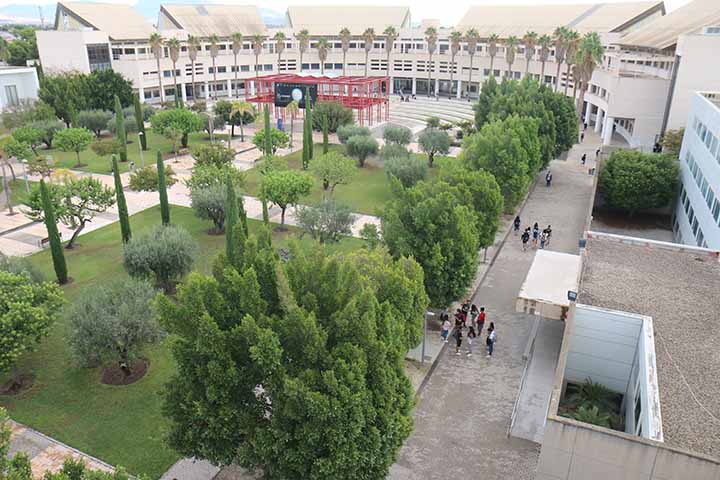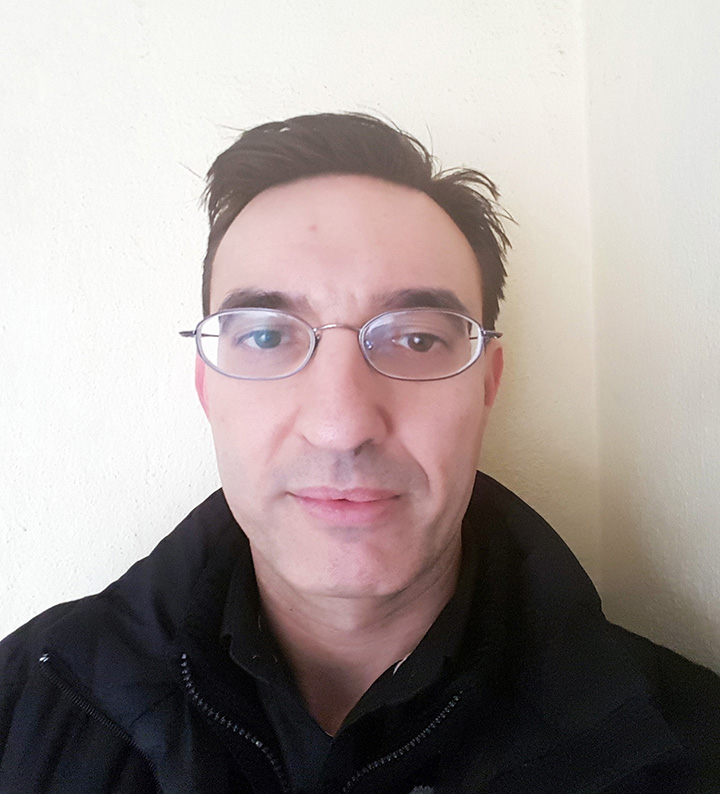A Journey Through Huawei's Certification Program
Produits, solutions et services pour les entreprises
Akıllı Telefonlar, Bilgisayar&Tabletler, Giyilebilirler ve Daha Fazlası

Reading guide: As the first HCIE lecturer in Huawei's first ICT Academy in Western Europe, the University of Alicante, this is Pedro Juan Roig's Huawei certification journey, a memorable and valuable experience in his life. Professor Roig shares his experience of this exciting and unforgettable journey with all ICT Academy instructors, hoping to encourage them to travel down the same path and reach this prestigious, globally recognized level.
It brings Professor Roig a sense of value and honor to have attained Huawei Certified ICT Expert (HCIE) status, the ICT industry's highest level of certification. With this certification, he became the first HCIE lecturer at the University of Alicante in Spain, which in 2014 became the first Huawei ICT Academy in Western Europe, receiving authorization to train its students on Huawei technologies.
The ICT Academy provides a vast amount of resources for both theory and practice to support everyone's studies, helping them to reach the goal of attaining Huawei certifications. Meanwhile, the training, practice, and preparation for the exam provide a deep understanding of network technologies, planning, design, and engineering practices based on lab scenarios, and continuously improve the practical capabilities of their participants to meet the talent needs of digital transformation.
Huawei's professional certifications are classified into three levels: Huawei Certified ICT Associate (HCIA), Huawei Certified ICT Professional (HCIP), and Huawei Certified ICT Expert (HCIE), which correspond to the engineer, senior engineer, and expert levels. Naturally, as one progresses through the certification levels, the exams become increasingly difficult.
Within the ICT sector, these are globally recognized professional certifications. And Huawei had certified more than 400,000 people worldwide by the end of 2020, of whom more than 14,000 had attained HCIE certifications. Prof. Roig is just one of those 14,000 people, having started this challenging and rewarding career journey in 2014.
Back in 2014, Prof. Roig didn't consider HCIE the target of his studying. Initially, he and his colleagues at the University of Alicante were only studying to pass an exam that was necessary to qualify as an ICT Academy instructor. Once he started this journey, however, he was unable to stop until he reached his biggest goal — Huawei's highest certification level.
At the foundation level, the Huawei HCIA certification involves learning theoretical and then putting it into practice, with the depth increasing as one progresses through the HCIP and HICE levels. Although Prof. Roig had already been teaching networking-related courses at the university, to prepare for the HCIA exam, he read through the academy textbooks, attended its training courses, and discussed various lab scenarios with other lecturers from the ICT Academy. From starting to prepare for the exam to passing the certification, it took nearly four months.
During the process, Prof. Roig developed a keen interest in Huawei's Routing and Switching (R&S), the basis of its networking technology. He began to enjoy exploring Huawei's unique value in the communications technology field. In particular, he was impressed by its approach of offering a wide range of networking and security products, all based in the same operating system, which means students don't need to learn new commands when dealing with new technologies.

A teaching building at the University of Alicante's ICT Academy
Once you've attained Huawei's HCIA certification, it's valid for three years, then you can choose to either continue to obtain the same level of certification or challenge yourself to improve your skills and try to achieve a higher level of certification.
Almost without hesitation, Prof. Roig and his colleagues chose to climb the higher mountain, and HCIP certification became their goal. Prof. Roig and his colleagues discussed this challenge; they decided to work together as a team and encouraged each other to achieve this goal. Finally, after nine months of sustained study and practice, they each earned a HCIP certificate, appreciating the depth of knowledge and skills required to reach this level. They felt that they had a much deeper understanding of this area of technology, especially with the in-depth practical element required.
After attaining a professional certification, it seemed a natural progression to continue the challenge at the highest certification level — HCIE. Following the enjoyable and challenging experience of completing the HCIA and HCIP levels, and having gained confidence in Huawei technologies and working together as a team, gave Prof. Roig and his colleagues more belief that they could achieve their goals. It took Prof. Roig and his colleagues about 15 months to prepare for the expert-level HCIE Certification exam, which includes both a written test and a lab exam.
The first part was the written test, which Prof. Roig was already familiar with from his experience at HCAI and HCIP levels, and this valuable experience greatly benefitted him at the expert level. The second part involved the lab test, which required remotely connecting to the lab at Huawei's headquarters and completing the configuration of network-related technologies within the allocated exam time of eight hours.
Prof. Roig was the first and only instructor at the University of Alicante to pass the expert level certification, becoming the first HCIE lecturer for the Huawei ICT Academy Program in Western Europe. Prof. Roig is extremely proud of this achievement, and he is delighted to share his experience to help more instructors pass their Huawei certifications and improve their skills and career progression opportunities.
Looking back at this certification journey, Prof. Roig believes that the best way to achieve it is to combine theory with practice. The former can be studied in training guides, which are required to understand the topics, and the latter can be studied in lab guides, which are necessary to put these topics into practice.
There's no shortcut to the HCIE certification: you need determination, in-depth knowledge, and a systematic learning plan to have a chance to succeed. Attitude is also very important, along with the experience gained at HCIA and HCIP levels — all this adds up to a successful outcome.
In Prof. Roig's opinion, HCIE courses are well designed and very practical. In the future, he believes that whichever mainstream ICT applications are popular, Huawei will provide the technologies to support them, which explains why its communications equipment and network equipment market share is increasing year on year. For the international market, Prof. Roig is very optimistic about the development prospects of Huawei's certified talent.
Prof. Roig is using his own experience to share his message with everyone: As well as improving his knowledge and skills, passing Huawei certification also improved his career progression. Prof. Roig believes that with the increase of digital transformation in various countries, the current talent pool can't meet market demand, so new talent is needed. The ICT industry is knowledge-intensive and is highly reliant on talent, which is essentially the 'infrastructure' of enterprise transformation.
Now, as a teacher at the ICT Academy, Prof. Roig always shares his successful experience with students without reservation. Prof. Roig tell others that, though it may take a lot preparation and seem overwhelming in the beginning, he thinks the best way is to move forward step by step. Even if you just take small steps as you learn each day, they will add up to great strides forward in the long term. Set a learning goal for yourself every day: If you are able to make your studies simple and interesting, naturally, you will immerse yourself in them, and finally you can get the ideal results.

Partner Point of View
When I first started the program, getting HCIE R&S certification seemed a long way off, but persevering was definitely worth it. It may seem too far away to achieve when you start, but it's better to treat the process as a long run rather than a sprint. In this way, you can strengthen all your technical skills in theory and in practice. Ultimately, if you're on the journey with some colleagues, things may be easier, and it's a great opportunity to build a stronger team.
— Pedro Juan Roig